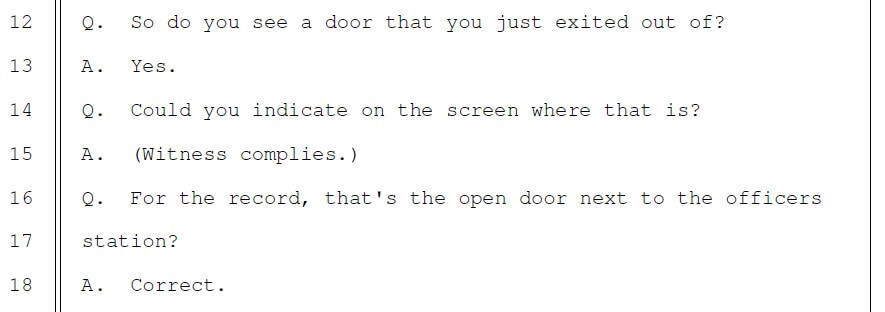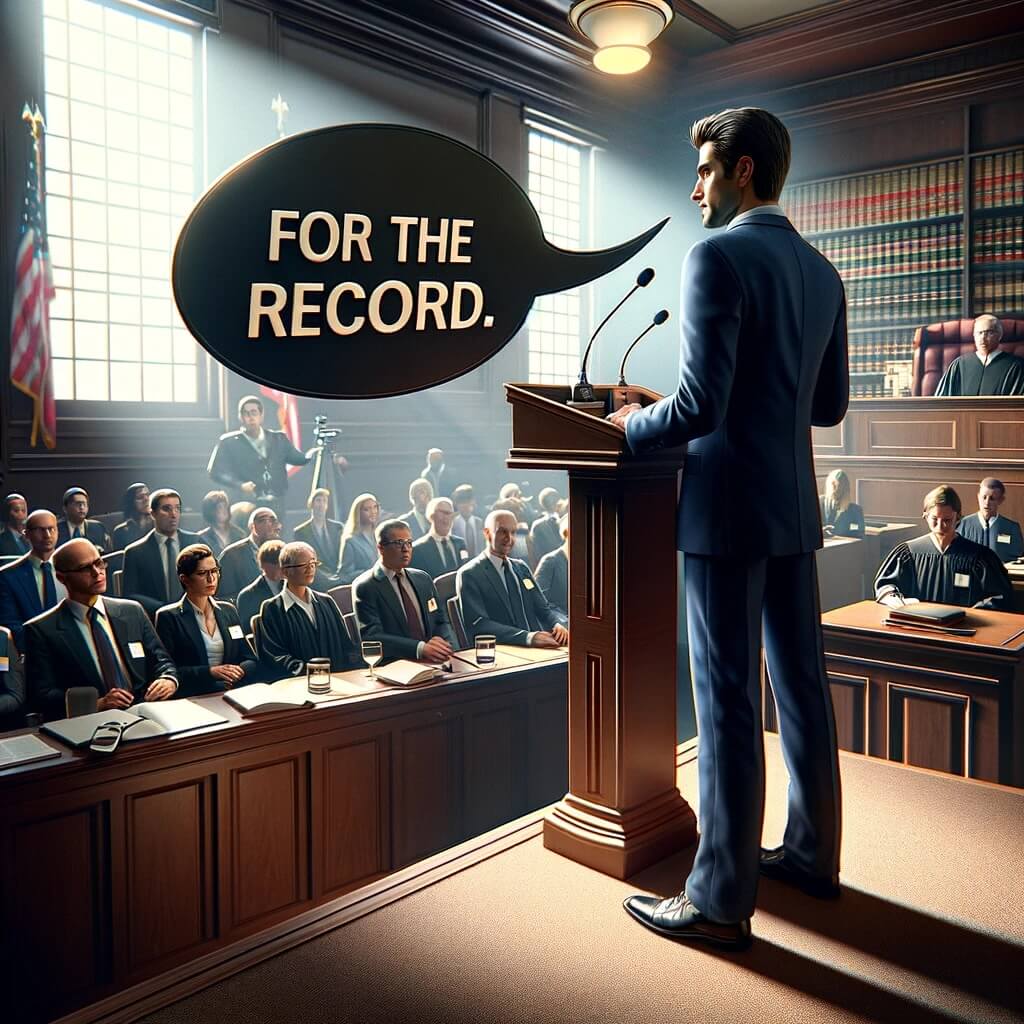It’s quite an annoying habit. The short answer: they probably don’t know any better. Or they haven’t put much thought into it. Or maybe it’s to sound “lawyerly”? Like when they show off the awesome Latin skills they picked up in law school – Therefore, i.e., ergo, hereinafter ipso facto, but for mens rea quantum meruit (That’s right, be impressed…). But, most likely, it’s because they are creatures of habit. It’s as if they’ve been indoctrinated by endless courtroom dramas, mimicking without questioning, “Why am I even saying ‘for the record’?”
Let’s clarify: This is pure speculation on my part; no hard science or statistical wizardry is backing this up (at least that I am aware of). But, I can say that 97%* of the time, if the lawyer omits the “for the record” preamble, their words would still be “on the record.” A few examples…
Exhibit A (When in doubt, leave it out):

Exhibit B (Unnecessary. That’s strike 2):

Here’s the thing: virtually every courtroom boasts either a stenographer or, these days, a digital court reporter. Basically, omnipresent ears catch every spoken word. So, you wonder if everything’s already “on the record,” why the redundancy? Exactly. It’s pointless (97%* of the time…).
Exhibit C (for Correct):

The lawyer didn’t say “for the record” and his exhibit still made it into the record?? Imagine that…
What’s even worse though? Sometimes, there is no court reporter. Civil and family hearings often do not have court reporters since the individual parties are responsible for paying them. With no court reporter, saying “for the record” is… well, just plain stupid. Yet, it still gets thrown around like a common marmoset.
For example, in a criminal proceeding, a prosecutor quizzes a victim, “Do you see the person who committed the crime?” After the inevitable nod and description of the person sitting next to the defense attorney, we hear, “For the record, the victim has positively identified the defendant.” Strip away the legal jargon, and you still get “The witness has identified the defendant.” Whether you jazz it up or not, the “record” will reflect what the lawyer wants it to reflect. Perhaps the lawyers think they are helping the court reporter? No. The court reporter types or records EVERYTHING, not just what comes after “for the record.”
This redundancy isn’t exclusive to courtrooms. It’s like a contagious epidemic in depositions. I’ve lost count of the number of transcripts I’ve read or depositions I have defended where an attorney says, “For the record, I’m showing the witness their report.” Just show the document and say what you are showing! Less is more, folks.
You’re probably asking yourself, what about the other 3%* of the time when it’s okay to say “for the record”?
A couple of those percentage points are allocated to lawyers performing for a jury that’s binge-watched too many courtroom dramas. If you think it’s part of the act, by all means, continue the charade. After all, jury trials are largely theater but with consequences. Nonetheless, less verbosity often equals more clarity. Other times, however, invoking “the record” is crucial. For example, when preserving an objection, you want to ensure you have access to the record. And if a judge says “for the record”? Well, as the learned Judge Dredd taught us all: [they are] the law. So if a Judge says “for the record,” assume there is a brilliant, necessary, and purposeful reason for doing so.
Perhaps the only thing worse than “for the record” is the ridiculous “strike that.” Spoiler: it’s not a magic eraser. The record will still reflect everything you said before and after “strike that.”

But he said “strike that” how come it’s still in the record??
As for using “for the record” in everyday conversations, just don’t. There is no record! It’s akin to saying, “To be perfectly honest…” Excuse me? Were you not being perfectly honest before? Don’t say it.
Mystery solved. Now let’s all agree to eliminate “for the record” from our vocabulary. If not for yourself, do it for the children.
*Important note: 87.6% of the time, statistics are made up…
-afv.

